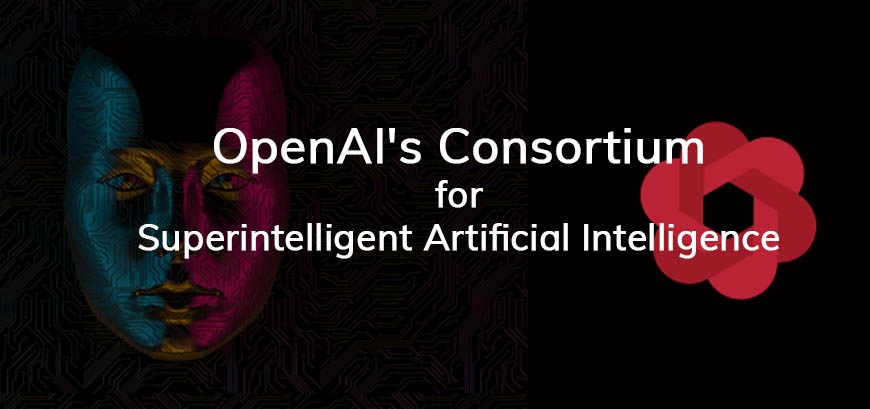Is Artificial Intelligence a Big Deal? Let’s Dive into the Debate
Artificial intelligence (AI) – it’s a topic that has sparked both excitement and scepticism in equal measure. As we delve into the world of advanced AI systems, the question arises: will AI bring about a catastrophic future, or is it just another overhyped technological obsession? Some argue that AI is nothing more than an improved version of chatbots, with no significant impact on our lives. But let’s take a closer look at this debate and explore the different perspectives.
The Cryptocurrency Comparison: Will AI Follow a Similar Path?
To better understand the significance of AI, we can draw a parallel to the world of cryptocurrency. A few years ago, there was a widespread belief in the tech community that decentralized currencies would revolutionize our world. However, these predictions didn’t materialize because essential aspects like fraud prevention and user convenience relied on the centralization that cryptocurrencies aimed to disrupt.
It’s important to approach Silicon Valley’s grand claims about the latest technological advancements with a healthy dose of scepticism. While these obsessions may lead to the creation of innovative companies and bring changes to our work and lifestyle, they often fall short of their transformative promises.
The Skeptical Perspective: AI’s Impact Might Not Be as Revolutionary as Claimed
While AI has seen rapid adoption and has replaced numerous jobs in a relatively short span, we should still consider the sceptical viewpoint. Most of the time, when something is hyped as an enormous breakthrough, it often fails to live up to expectations.
Let’s examine four categories that capture different attitudes toward AI:
1. The Optimistic Futurists: AI Will Revolutionize Our World
Some believe that extremely powerful AI is on the horizon, poised to transform every aspect of our lives. They envision a future where AI tutors possess infinite knowledge, compassion, and patience, benefiting every child. This perspective sees AI as a force for good and welcomes its potential.
2. The Pessimistic Alarmists: AI Poses Existential Risks
On the opposite end of the spectrum, some fear that AI could lead to human extinction. According to a recent survey, half of machine learning researchers believe there is a substantial chance that AI could create superintelligent beings with goals conflicting with humanity’s interests. These sceptics argue that without breakthroughs in AI alignment research, we cannot guarantee safety and must consider the potential harm.
3. The Cautious Realists: AI Won’t Radically Transform Our World, but It Comes with Risks
For some, AI won’t be the game-changer that the optimists envision. They argue against getting carried away by utopian or apocalyptic fantasies and stress the importance of addressing present concerns, such as worker exploitation and bias within AI systems. These cautious realists acknowledge that AI can be beneficial if used appropriately but urge us not to overlook the risks.
4. The Pragmatic Enthusiasts: AI’s Impact Will Be Positive, without Catastrophic Consequences
Lastly, some believe that AI won’t radically transform our world but still hold a positive outlook. Many developers working on AI tools for programmers fall into this category. They contend that concerns about superintelligence and bias are exaggerated, as AI is no different from any other technology – it’s good if we use it for good purposes.
The Challenge of Communication: Talking Past One Another
In conversations about AI, it often feels like we’re speaking different languages. Each quadrant of thinking has its own set of concerns and perspectives, making it challenging to find common ground. To facilitate a productive conversation, we must acknowledge the uncertainties surrounding AI and embrace a more open-minded approach.
For those who believe AI will bring immense benefits, there’s a sense of urgency to push its development forward. Delaying progress due to safety concerns could deprive millions of people from experiencing its potential advancements. On the other hand, those who emphasize the risks associated with AI must effectively communicate the seriousness of these risks to the optimists. They need to demonstrate that the potential dangers warrant the significant costs of slowing down the development of such a powerful technology. If AI is indeed a game-changer, our societal conversation should revolve around safely harnessing its transformative power.
However, many remain unconvinced that AI will have a substantial impact. From their perspective, there’s no groundbreaking revolution looming on the horizon. Their focus lies in either regulating existing AI systems if they are mostly harmful or allowing the systems to progress unhindered if they are most beneficial.
To bridge these differing viewpoints, we must embrace uncertainty. With the rapid pace of AI advancements, it’s difficult to predict outcomes with certainty. We’re still grappling with why our current techniques have been so successful and how long we’ll continue to see improvements. The breakthroughs that lie ahead remain largely unknown. It’s entirely possible that AI will lead us to a glorious utopia, or it could result in utter catastrophe. Alternatively, we might experience a rather uneventful decade without any groundbreaking leaps.
To ensure a fruitful societal conversation about AI, we must recognize that the terrain we’re entering is both confusing and uncertain. By fostering a more open dialogue and considering various perspectives, we can navigate the complexities of AI more effectively and shape a future that maximizes its potential while minimizing its risks.
In conclusion, the debate surrounding the significance of artificial intelligence continues. While some anticipate a world-shattering revolution, others remain sceptical of its transformative power. By acknowledging the various perspectives and engaging in open-minded discussions, we can navigate the future of AI more thoughtfully and realize its potential for the betterment of humanity





